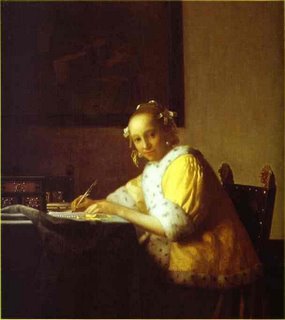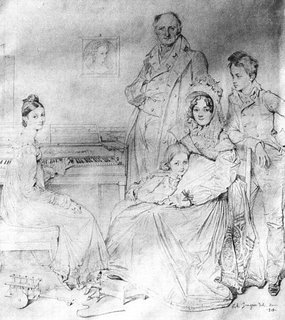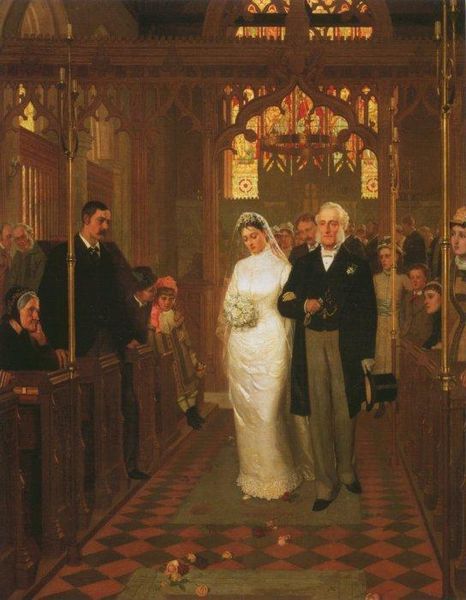
Janet’s post yesterday dovetails in nicely with what has been on my mind lately: Finishing the darn book.
I don’t mean finishing reading it, but finishing writing and editing it. See, I’ve had this Regency-set historical I’ve been editing, and last night I officially finished editing it. Until my last reader reports in with her feedback.
Like Janet, I like the quick ending. I despise epilogues, especially if there are little bundles of joy around. Not that I don’t like kids (I have one, after all), it’s that I don’t romanticize parenthood. Overweight, exhausted women who resent their husbands for sleeping through the night? Not romantic. But I digress.
I do have problems with some authors rushing too quickly to the end. Janet mentions Judith Ivory in her post, and some of Ivory’s books seem like she just wants to get out of there.
Until recently, I wondered why she just didn’t take as much careful time to craft her story at the end as she had all the way through the book.
Until recently.
I was so excited to get towards the end of my book that I totally rushed through the ending, wrapping up all sorts of plotlines in a few quick sentences. I know I’ll have to go back and flesh things out a bit, but right now? I’m just happy to be done. My last reader is starting to read the ms. today, will have feedback over the weekend, so it’s not like I have a whole lot of time off from it. But it’s enough.
Not all of you are writers, but all of you do things in your lives that you start and finish. Do you find yourselves rushing to get to the end? Delaying it as long as you can because there’s just another task waiting beyond this one? Or are you that pinnacle of perfection, taking as much time and energy–but not too much–with the end as you did the previous 95%?
Meanwhile, wish me luck this weekend with the editing. I thought I was done.
Megan
www.meganframpton.com
 I can’t believe it’s the weekend already!! (and many thanks to Megan for pitching in for me on Tuesday…hopefully now that deadlines are looking reasonable again, and warm weather is here, I won’t go down in my writing hole quite so often…). And Happy Easter to everyone, too.
I can’t believe it’s the weekend already!! (and many thanks to Megan for pitching in for me on Tuesday…hopefully now that deadlines are looking reasonable again, and warm weather is here, I won’t go down in my writing hole quite so often…). And Happy Easter to everyone, too.
 In the meantime, I’ve been catching up on my reading. I just finished Pamela Druckerman’s Bringing Up Bebe: One American Mother Discovers the Wisdom of French Parenting. (and no, I don’t have any kids–I just always seem compelled to read any book that tells me how to be more French). Among lots of other interesting (and practical) info, she has a great take on the difference between American and French children’s books:
In the meantime, I’ve been catching up on my reading. I just finished Pamela Druckerman’s Bringing Up Bebe: One American Mother Discovers the Wisdom of French Parenting. (and no, I don’t have any kids–I just always seem compelled to read any book that tells me how to be more French). Among lots of other interesting (and practical) info, she has a great take on the difference between American and French children’s books:



